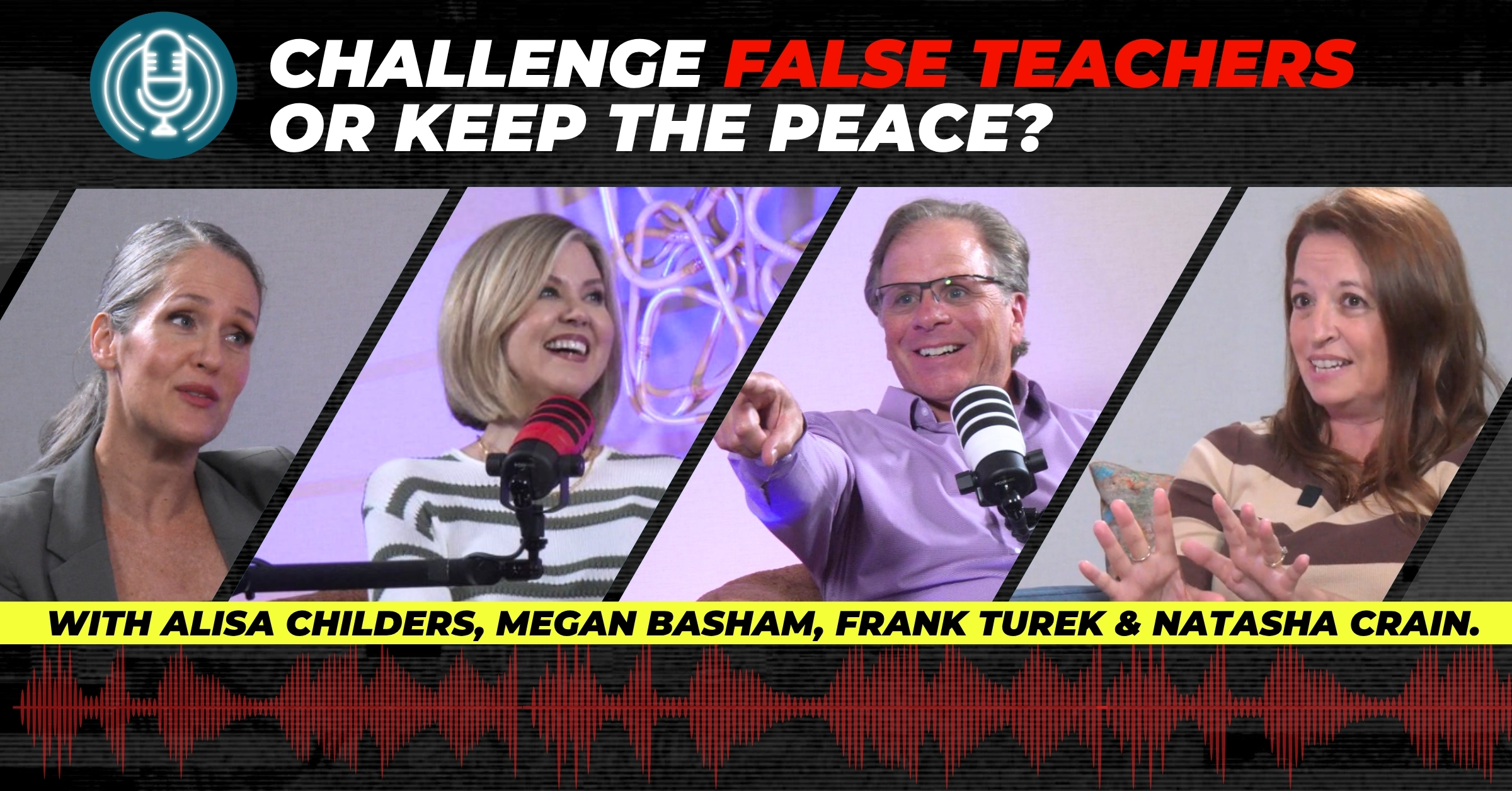There’s No Need To Apologize
By Alex McElroy
As an apologist, the most common joke I hear from Christians unfamiliar with Apologetics is, “do you go around apologizing to everyone?” In case you are wondering too, no, I don’t. In fact, I believe having a Christian worldview is nothing to apologize for. So, what does an apologist do? We provide credible answers to some of life’s most difficult questions and seek to uphold the Christian worldview through scientific, historical, archaeological, and philosophical evidence.
If you are unfamiliar with the term apologetics or have never heard of an apologist, that is understandable as we constitute a small portion of the total church. That being said, if you want to get your feet wet go read or listen to some of the most notable apologists – Ravi Zacharias, John Lennox, Dr. William Lane Craig, Dr. Frank Turek, Dr. Sean McDowell or Jim Warner Wallace. I’m always blessed and enlightened by their robust and well-prepared thoughts and teachings.
Sometimes I do meet Christians who seem to feel as though they have something to apologize for because they are not equipped to answer questions their critics raise. This doesn’t mean an answer doesn’t exist. It just means they haven’t fully thought through the question. This is where apologetics comes in. Furthermore, the questions cannot simply be laid at the feet of the Christian as though they are the only one who needs to provide an answer. Everyone, whether they are Christian, atheist, or pluralist, needs to have a coherent answer to some foundational questions.
Let’s look at 3 of them.
Are There Reasons to Believe That God Exists?
Scientists largely agree that the universe had a definite beginning – meaning it is not eternal. For example, Einstein’s theory of general relativity, the second law of thermodynamics and the radiation afterglow discovered in the early universe are all evidence that the universe had an uncaused first cause. This is also supported by general logic – something cannot come from nothing.
That being the case, there are two options: either something came from nothing or something came from someone. The issue is that there has never been an observed instance where something sprang forth from nothing. Aristotle defined ‘nothing’ as “what rocks dream about”. This leaves us with the other option: something came from someone. This is also supported by general logic – every creation has a creator. If the universe didn’t come from nothing, it had to have a creator, someone that pre-existed the universe and exists outside of the universe…that sounds a lot like God to me.
Is There an Objective Moral Standard?
I’ve talked with many people from many different worldviews. I’ve found that this line of argument seems to be the most overlooked by those that don’t believe in the God of the Bible. I know many atheists, most of whom are great, morally upright people. The issue isn’t that disbelief in God makes you evil, or that belief in God makes someone good. The issue is that in purely naturalistic worldview terms like good and evil are meaningless and at best, purely subjective.
C.S. Lewis, who called himself England’s most reluctant convert wrote, “My argument against God was that the universe seemed so cruel and unjust. But how had I got this idea of just and unjust? A man does not call a line crooked unless he has some idea of a straight line. What was I comparing this universe with when I called it unjust?” Likewise, if objective evil exists, then an objective moral law must exist in order to have a basis upon which to differentiate between good and evil. In order for that law to remain objective, it must originate from a source that transcends those (us) that it governs. The only option here is God. There is no way to arrive at objective moral values from a naturalistic worldview. In the case for morality, it seems there is no reason to apologize for having a Christian worldview.
Does Life Have Meaning?
I like to play basketball. The shoes that I find work best for me are the “Kobe’s” (named for Kobe Bryant). If I go to the store and they have them for $100, I’ll probably buy them if I’m in the market for new shoes. However, if they were to tell me that the cost was $1,000, I would decline because that would not be an accurate assessment of their value. Only two people determine the value of an object – the creator or the purchaser. Value can never objectively be self-determined. If we apply this concept to humans, then the Christian worldview is wholly unique. Only in a Christian worldview are the purchaser and the Creator the same person. We have been redeemed (bought back) by our Creator. In an atheistic framework, we are the culmination of a random, unguided assortment of molecules. How can there be any value in that? This also means that only in a Christian worldview can we even begin to discuss concepts such as intrinsic value and inherent worth.
This understanding of our value is pivotal because without value, there can never be meaning. In other words, if something is of no value or no legitimate value can be attributed to it, then it in effect becomes a meaningless item. So, the fact that humans are given value by a Creator and a purchaser (redeemer) who is in the legitimate position to impute value to us is of utmost importance. Therefore, there is no need to apologize for adherence to a Christian worldview because only in this worldview does life have meaning because we are eternally connected to the One who gives meaning to all things.
Alex McElroy is an international speaker, author, blogger, leadership advisor, and the Pastor of Education at New Life Covenant Southeast Church, with over 20,000 members led by Pastor John F. Hannah. Alex has been serving in both youth and teaching ministries at New Life for over 12 years. In his role, he teaches Discipleship class designed for adults to learn, fellowship, and grow in their faith within a small group setting. Alex also trains hundreds of teachers and ministers to deliver lessons in proper lifestyle, Biblical study, focused preparation, and Apologetics in order to maximize their effectiveness in and for the Kingdom of God.












Leave a Reply
Want to join the discussion?Feel free to contribute!